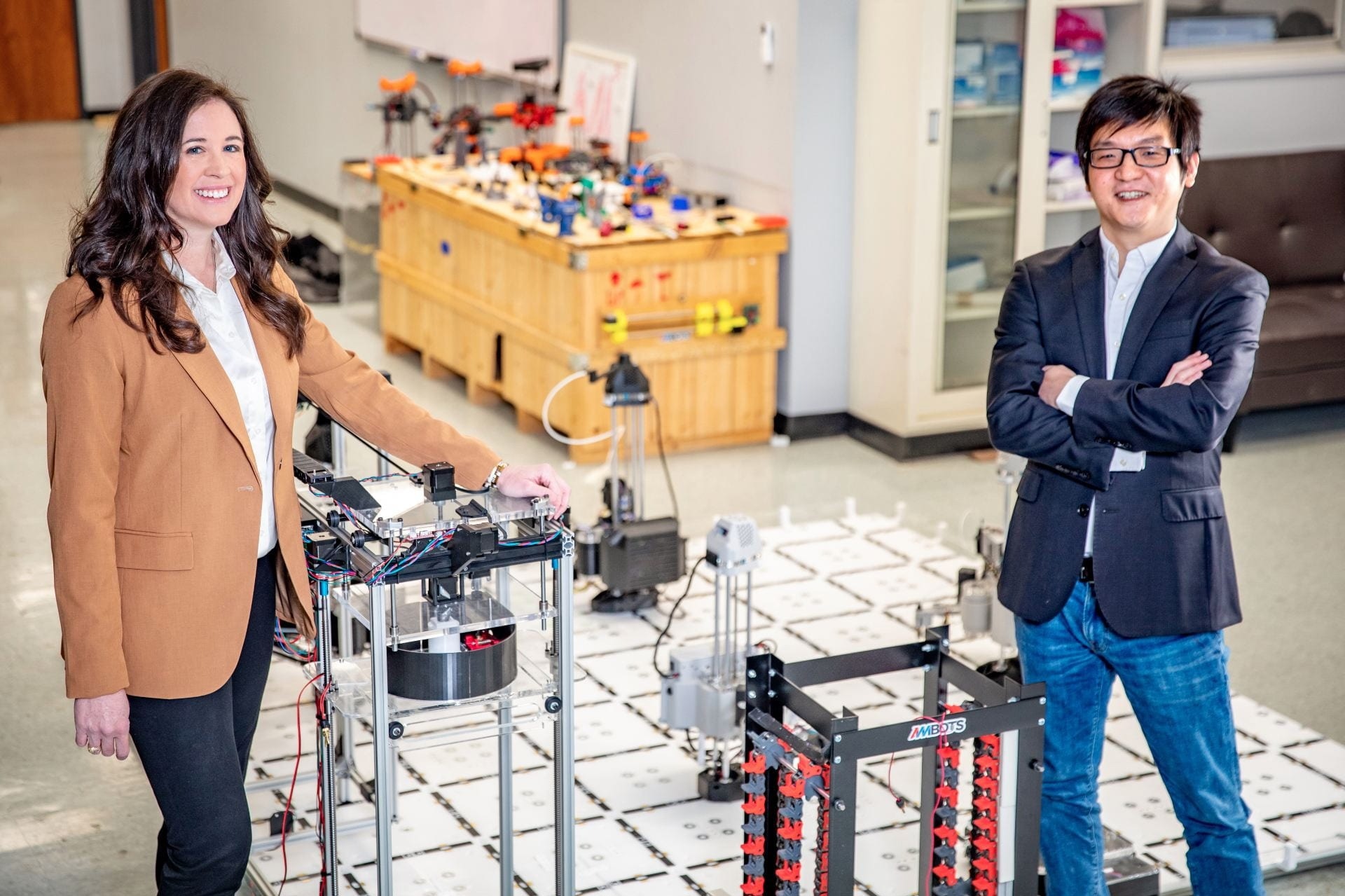
Image Credit: University of Arkansas
The faculty team will work to identify the optimal design patterns and indigenous materials for use in horizontal construction projects (such as culverts, T-walls, and Jersey barriers), as well as to create printing instructions for mobile robots that can be deployed quickly on-site.
Michelle Barry, an Associate Professor of civil engineering, will be the grant’s principal investigator. Co-PIs will be Wenchao Zhou, an Associate Professor of mechanical engineering, and Cameron Murray, an Assistant Professor of civil engineering.
Barry, who will be in charge of the Granular Materials Research Laboratory, will have several responsibilities. They will investigate new material structures and geometric configurations to improve performance and efficiency. This will include investigating biomimetic structures, which mimic naturally occurring designs such as honeycomb patterns and can reduce material consumption while increasing strength.
Barry will also catalog and characterize a variety of indigenous soils to ascertain their suitability for use in concrete. Instead of shipping cement and aggregates across vast distances, an expeditionary force will be able to deploy and use local materials in horizontal construction.
Instead, the force would have a convenient catalog of recipes for concrete mixes that are tailored to local conditions and can be pumped through nozzles and 3D printed on-site with the necessary robots.
Murray, a concrete expert, will help with concrete composition analysis and also large-scale testing of experimental forms.
Zhou, the Director of the U of A’s Advanced Manufacturing, Modeling, and Materials Lab, is also the co-founder of AMBOTS, a local startup company developing “swarm manufacturing technology.” Zhou’s role will be to oversee the conversion of the team’s CAD models into machine instructions. This is easier said than done, as it will require laying down printing paths for a variety of materials and designs, as well as eventually incorporating multiple robots.
AMBOTS will be in charge of software development for 3D printing robots. The robots are expected to act independently as well as collaboratively and to adapt to various combinations. Other factors to consider include ensuring high precision in large-scale printing jobs, developing a mobile platform that can be deployed rapidly in a variety of environments, and the ability to power the overall system.
The research will be carried out by graduate students from Zhou’s lab as well as AMBOTS employees.
Creating a prototype in two years is a huge task, but Barry expects to enlist the help of up to 18 graduate students, post-doctoral students, and research technicians, as well as additional faculty. The award funds will also be used to purchase a large format 3D printer as well as additional soil and concrete characterization equipment.
Barry stated that she has been interested in using indigenous soils for some time, owing to the lower environmental impact.
Humans have been building with soils for thousands of years, but 3D printing soils enables us to use soils in new and exciting ways. We can build structures or roads in disaster relief areas. where you’re just bringing in a piece of equipment because you might not be able to bring in other construction materials. If the local soils will work, you print with them for the time being, people are sheltered and then once it’s not needed, it dissolves back to the original landscape.
Wenchao Zhou, Associate Professor, Mechanical Engineering, University of Arkansas
The project also provides an excellent opportunity for AMBOTS to demonstrate its capabilities.
We’re excited to have the opportunity to work with ARA and leverage their industry knowledge and experience to develop cutting-edge 3D printing capabilities. This grant will enable us to invest in research and development, driving the innovation of our swarm 3D printing technology and unlocking new possibilities for the future of construction and other industries.
Wenchao Zhou, Associate Professor, Mechanical Engineering, University of Arkansas
The $3.5 million subaward is part of a larger $12 million award from the US Army Engineer Research and Development Center.